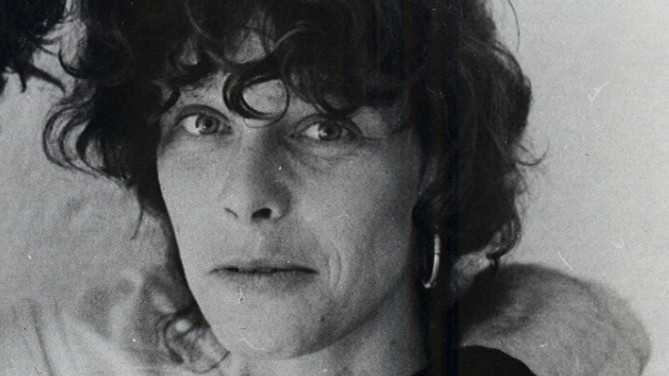Wherever you met her, it was immediately about the big picture. What are we doing here on earth? How can you counter the all-round mess with something meaningful and beautiful? And isn’t that meadow in front of her just amazing, those colors, that splendour! Once, at the Glockenbach, she interrupted some rancid complaints about life: “But look…”, she formed a kind of camera lens with four fingers, held them in front of her eye and looked at the blue sky: “…everything is always there, or?”
Last Monday, Simone Fürbringer’s new film premiered at the Munich Dokfest. “Floating Islands”, written, filmed, edited with her husband Nicolas Humbert, a film poem and visual dream, devotion to life and melancholy of passing.
Everything that made Fürbringer special from the beginning can be found here again: the love for the circus and for being a vagabond (she started out as an acrobat). The animals and landscapes, sheep in the late afternoon light, flickering insects, a boat in a veil of morning mist. The search for other, healthier life plans. The eye for the spaces in between and the gift of letting the sound track run independently alongside the images.
The friends of life appear again
All the great companions, music and life friends appear again. The very old Jonas Mekas stands in his New York stairwell and says with that mischievous boyish smile that in all his films it was about rediscovering the intensity of experience of his five-year-old alter ego. – And then this almost ecstatically beautiful scene: Simone Fürbringer holds an audio cassette out of a moving car, the brown tape is caught in the wind and continues to unwind, at the end 90 minutes of silent soundtrack fluttering in the wind. As Gilles Delleuze said in another of her cinematic nomad diaries: “You should draw lines, not set points.”
“Floating Islands” closes another, more intimate circle: At the end of the 1990s, Fürbringer and Humbert made a similarly radical, quiet joint film: “Vagabonding Images” was created in the editing room like a conversation, based on the collaborations between surrealist poets to which one writes something and hands it to the other, who then continues to write, a cinematographic dialogue about life, chance and love. Their son Noah, who appears in her pregnant belly as a future life, is now a famous drummer and can be heard several times on the shimmering soundtrack of “Floating Islands”.
Back then, in 1998, Fürbringer said in a workshop discussion with her husband that the free narrative form “keeps the pictures secret.” When Nicolas Humbert says that these miniatures often contain stories, she replies: “Yes, but invisible ones. Like all the smallest stories that still play out secretly on the celluloid, on the black bars from one picture to the next.”
She wanted to make the world fairer
Simone Fürbringer, born in Basel in 1957, gave birth to other people’s films by giving them the right form in the editing process. She has also made her own documentaries, for example about an autistic theater group. And she tried very secretly to make the world a nanogram fairer, day by day, always new.
“Floating Islands” begins with the recording of the joint gravestone of the film couple Jacques Demy and Agnès Varda. You can hear the old Varda herself from the off: “Perhaps the only very big event that changes us is death. Because you transition from life to death.” While “Floating Islands” was showing in Munich on Monday, Simone Fürbringer died of cancer in the “Wolfsgrub,” the old farm in the foothills of the Alps where the filmmaker couple lived and created many of their pictures. Her twin Nicolas Humbert and their three children were with her. She was 65 years young.
The Dokfest is showing “Floating Islands” again in memory of Simone Fürbringer, tomorrow, Sunday, at 2 p.m. in the Neues Rottmann.

